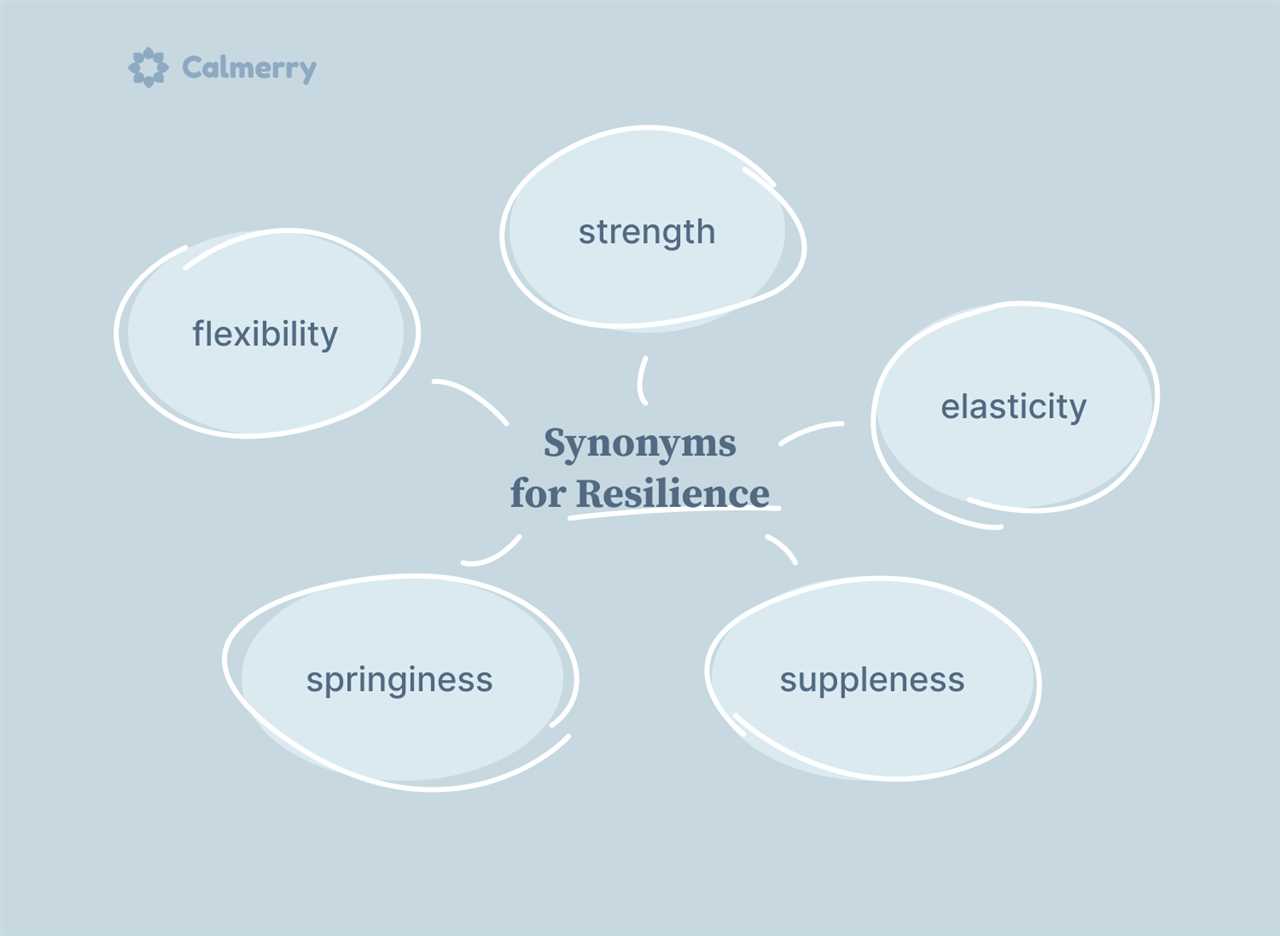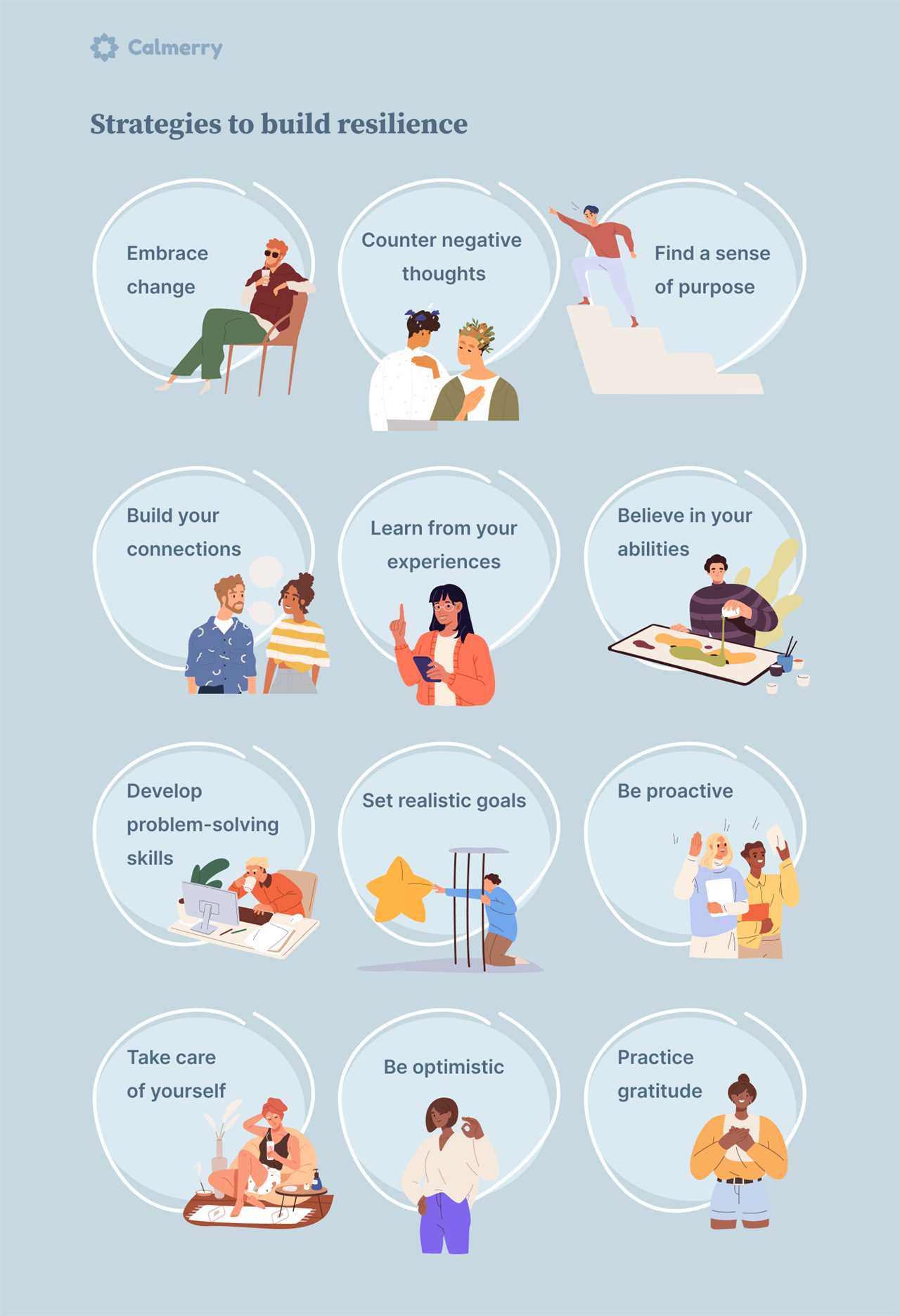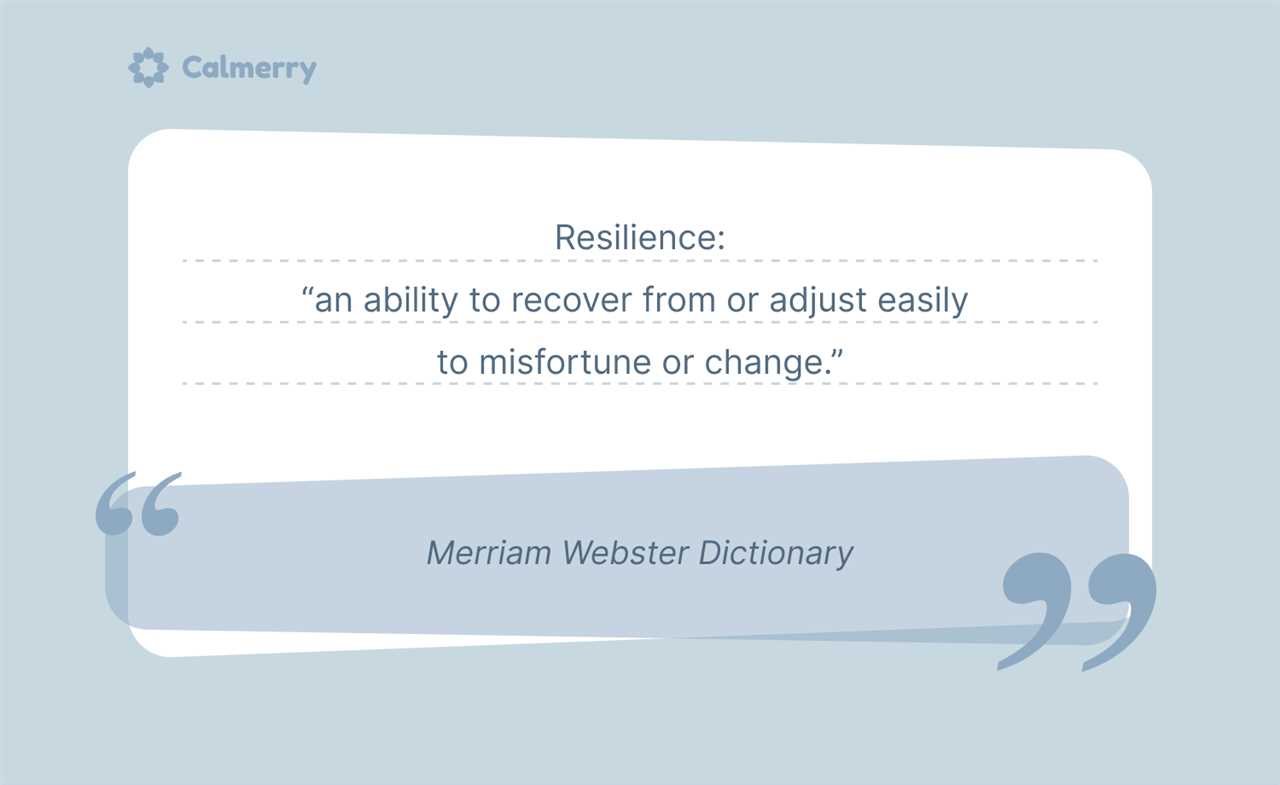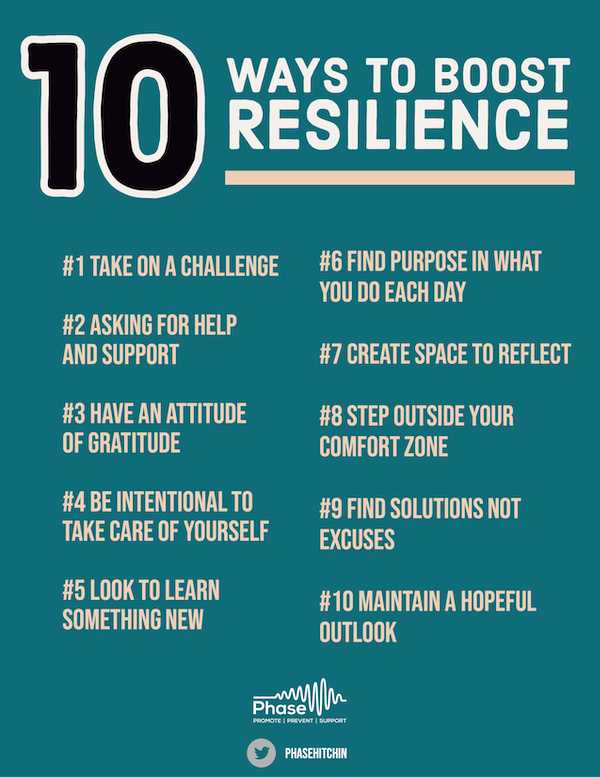
Stress has become an inevitable part of our lives, affecting our mental and physical well-being. However, building resilience to stress is essential in order to maintain a healthy and balanced lifestyle. By incorporating mindfulness techniques, exercise, and other strategies into our daily routines, we can improve our stress resilience and thrive in the face of challenges.
Mindfulness is a powerful tool that can help us manage stress and build resilience. By practicing mindfulness, we can cultivate a greater awareness of our thoughts, emotions, and physical sensations, allowing us to respond to stress in a more balanced and constructive way. Whether it’s through meditation, deep breathing exercises, or simply taking a moment to pause and observe, incorporating mindfulness into our daily lives can greatly improve our stress resilience.
Regular exercise is another effective way to boost stress resilience. Physical activity releases endorphins, our body’s natural feel-good chemicals, which can help combat stress and improve our mood. Whether it’s going for a run, practicing yoga, or engaging in any other form of exercise that you enjoy, finding ways to incorporate physical activity into your daily routine can have a significant impact on your stress resilience.
In addition to mindfulness and exercise, there are numerous other strategies that can help improve stress resilience. These include practicing self-care, such as getting enough sleep, eating a balanced diet, and engaging in activities that bring you joy and relaxation. Building a strong support network of friends and family can also provide a valuable source of emotional support during times of stress. Finally, learning to set boundaries and prioritize your own needs can help prevent burnout and improve your overall stress resilience.
By incorporating these techniques and strategies into your daily life, you can improve your stress resilience and thrive in the face of adversity. Remember, stress is inevitable, but with the right tools and mindset, you can build the resilience needed to navigate life’s challenges with grace and ease.
Prioritize Self-Care

Self-care is essential for managing stress and improving resilience. By taking care of yourself, you can better cope with the challenges that life throws at you. Here are some ways to prioritize self-care:
| 1. Exercise regularly: | Physical activity is a great way to reduce stress and improve overall well-being. Find an exercise routine that you enjoy and make it a regular part of your self-care practice. |
| 2. Practice mindfulness: | Mindfulness techniques, such as meditation and deep breathing exercises, can help you stay present and calm in the face of stress. Incorporate these practices into your daily routine to enhance your self-care. |
| 3. Set boundaries: | Learn to say no and prioritize your own needs. Setting boundaries with others can help protect your time and energy, allowing you to focus on self-care. |
| 4. Get enough sleep: | Adequate sleep is crucial for your physical and mental health. Make sure you prioritize getting enough restful sleep each night as part of your self-care routine. |
| 5. Engage in hobbies: | Take time to do activities that bring you joy and help you relax. Whether it’s painting, gardening, or playing an instrument, engaging in hobbies can be a great way to practice self-care. |
| 6. Connect with others: | Building and maintaining strong relationships can provide support during challenging times. Make time for social connections and surround yourself with positive influences. |
| 7. Practice self-compassion: | Be kind to yourself and treat yourself with the same compassion and understanding you would offer to a close friend. Practice self-compassion as part of your self-care routine. |
| 8. Take breaks: | Allow yourself regular breaks throughout the day to recharge and relax. Step away from work or other stressors and engage in activities that help you unwind. |
| 9. Seek professional help if needed: | If stress becomes overwhelming or you’re struggling to cope, don’t hesitate to seek help from a mental health professional. They can provide guidance and support to help you navigate through difficult times. |
By prioritizing self-care and implementing these strategies, you can boost your stress resilience and thrive in the face of adversity.
Make Time for Regular Exercise
Exercise is a powerful tool for improving resilience and managing stress. Engaging in regular physical activity not only benefits your physical health but also has a positive impact on your mental well-being.
When you exercise, your body releases endorphins, which are natural mood-boosting chemicals that help reduce stress and increase feelings of happiness. Physical activity also helps to reduce the levels of stress hormones in your body, such as cortisol, and promotes better sleep, which is essential for resilience and overall well-being.
Additionally, exercise can be a form of mindfulness, allowing you to focus on the present moment and let go of worries and stressors. Whether it’s going for a run, practicing yoga, or taking a dance class, finding an exercise routine that you enjoy can be a great way to incorporate self-care into your daily life.
To improve your stress resilience through exercise, consider incorporating different strategies into your routine. For example, you could try high-intensity interval training (HIIT) to get your heart rate up and release any pent-up stress or tension. Alternatively, you could explore more calming activities like Pilates or tai chi to promote relaxation and mindfulness.
Remember, the key is to find an exercise routine that works for you and fits into your schedule. Aim for at least 30 minutes of moderate-intensity exercise most days of the week. If you’re new to exercise, start slowly and gradually increase the intensity and duration of your workouts.
By making time for regular exercise, you can improve your resilience to stress and enhance your overall well-being. So, lace up your sneakers, find an activity you enjoy, and prioritize self-care through physical activity.
Practice Mindfulness and Meditation
Mindfulness and meditation are powerful techniques that can help improve stress resilience and overall well-being. By practicing mindfulness, you can learn to be fully present in the moment, allowing you to better manage stress and reduce its negative impact on your life.
There are various ways to incorporate mindfulness and meditation into your daily routine. One of the most common ways is to set aside a few minutes each day for formal meditation. Find a quiet and comfortable space, sit in a relaxed position, and focus your attention on your breath or a specific object. As thoughts arise, gently bring your attention back to your chosen focal point.
In addition to formal meditation, you can also practice mindfulness throughout your day. This can involve bringing awareness to your thoughts, feelings, and sensations as you go about your daily activities. For example, while eating, pay attention to the taste, texture, and smell of your food. When walking, notice the sensation of your feet hitting the ground.
Regularly engaging in mindfulness and meditation can help reduce stress, improve focus and concentration, and promote a sense of calm and well-being. These self-care strategies can be especially beneficial when combined with other stress-reducing activities such as exercise and healthy lifestyle choices. By incorporating mindfulness into your daily routine, you can enhance your stress resilience and thrive in the face of life’s challenges.
Get Enough Sleep

Getting enough sleep is a crucial aspect of self-care and plays a significant role in boosting stress resilience. Lack of sleep can contribute to increased stress levels and make it more challenging to cope with daily challenges.
Here are some strategies to ensure you get enough sleep:
- Establish a consistent sleep routine by going to bed and waking up at the same time every day.
- Create a relaxing bedtime routine that includes activities such as reading, taking a warm bath, or practicing mindfulness techniques.
- Avoid electronic devices, such as smartphones and laptops, before bedtime as the blue light emitted can interfere with your sleep.
- Create a comfortable sleep environment by keeping your bedroom dark, quiet, and at a cool temperature.
- Avoid consuming caffeine or heavy meals close to bedtime as they can disrupt your sleep patterns.
- Engage in regular exercise during the day, as it can help improve sleep quality.
- Avoid napping during the day, especially close to bedtime, as it can interfere with your ability to fall asleep at night.
- Practice relaxation techniques, such as deep breathing or progressive muscle relaxation, to help calm your mind before bedtime.
- Consider using natural sleep aids, such as herbal teas or essential oils, to promote better sleep.
By incorporating these techniques into your daily routine, you can improve your sleep quality and enhance your overall stress resilience.
Build a Strong Support Network

In order to boost your stress resilience and thrive, it is essential to build a strong support network. Having a support system in place can provide you with the techniques and strategies you need to effectively manage stress and navigate challenging situations.
One of the most effective ways to build a strong support network is through mindfulness and self-care practices. Taking time for yourself and engaging in activities that promote relaxation and self-reflection can help you develop a deeper understanding of your own needs and emotions.
Additionally, seeking out trusted friends, family members, or mentors who can provide guidance and support can be invaluable. These individuals can offer a listening ear, provide advice, and offer different perspectives on the challenges you may be facing.
Exercise can also play a crucial role in building a strong support network. Engaging in physical activity not only helps to reduce stress levels, but it can also provide an opportunity to connect with others who share similar interests. Joining a fitness class or sports team can help you meet new people and establish meaningful connections.
Overall, building a strong support network is an essential component of stress resilience. By incorporating mindfulness, self-care, and exercise into your routine, you can develop a network of individuals who can provide the support and guidance you need to thrive in the face of stress.
Cultivate Healthy Relationships
One of the most effective ways to boost your stress resilience and thrive is to cultivate healthy relationships. Building strong connections with others can provide a support system that helps you navigate through stressful situations.
Here are some techniques to improve your relationships and enhance your stress resilience:
- Practice active listening: When engaging in conversations with others, make an effort to truly listen and understand their perspective. This can help foster deeper connections and build trust.
- Express gratitude: Show appreciation for the people in your life by expressing your gratitude. This can be as simple as saying thank you or writing a heartfelt note.
- Set boundaries: It’s important to establish boundaries in your relationships to ensure that your needs are met and you have time for self-care. Communicate your boundaries clearly and respectfully.
- Be mindful of your communication style: Choose your words carefully and be mindful of how you communicate with others. Avoid negative or aggressive language and strive for open and honest communication.
- Practice empathy: Try to understand and empathize with the feelings and experiences of others. This can help strengthen your relationships and create a supportive environment.
- Engage in activities together: Find activities that you enjoy and invite others to join you. This can help create shared experiences and deepen your connections.
- Offer support: Be there for others when they need support. Offer a listening ear, provide assistance, or simply be present. This can strengthen your relationships and create a sense of mutual support.
- Resolve conflicts: Conflict is a natural part of any relationship. When conflicts arise, try to resolve them in a constructive and respectful manner. This can help prevent long-term damage to your relationships.
- Make time for socializing: Prioritize socializing and spending time with loved ones. This can help reduce stress and provide a sense of belonging and connection.
By cultivating healthy relationships, you can enhance your stress resilience and create a support system that helps you thrive. Incorporate these techniques into your life and experience the positive impact they can have on your overall well-being.
Seek Emotional Support
When it comes to managing stress and building resilience, seeking emotional support is crucial. Self-care and mindfulness are important strategies to improve your emotional well-being, but sometimes you need additional support from others.
Here are some ways to seek emotional support:
- Reach out to friends and family: Share your feelings and concerns with loved ones who can provide a listening ear and offer comfort and advice.
- Join a support group: Engage with others who are going through similar experiences. Being part of a supportive community can provide a sense of belonging and understanding.
- Find a therapist or counselor: A trained professional can help you navigate your emotions and provide guidance on coping techniques.
- Practice active listening: Be there for others when they need support. Actively listening and empathizing can strengthen relationships and create a supportive network.
- Engage in hobbies and activities: Participate in activities that bring you joy and help you relax. This can help distract from stressors and provide an outlet for emotional expression.
- Exercise regularly: Physical activity releases endorphins, which can improve mood and reduce stress. Incorporate exercise into your routine to boost your emotional well-being.
- Practice relaxation techniques: Techniques such as deep breathing, meditation, and progressive muscle relaxation can help calm the mind and body.
- Seek professional help if needed: If you’re struggling with severe stress or mental health issues, don’t hesitate to reach out to a mental health professional for support and guidance.
- Take breaks and recharge: Give yourself permission to take breaks and prioritize self-care. Taking time for yourself can help prevent burnout and improve your ability to handle stress.
Remember, seeking emotional support is not a sign of weakness but a sign of strength. Building resilience is a journey, and having a support system can make a significant difference in your ability to thrive.
Join Supportive Communities
One of the ways to improve your stress resilience and thrive is by joining supportive communities. Connecting with others who are going through similar experiences can provide a sense of belonging and understanding, which can help to reduce stress levels.
Supportive communities can take many forms, such as local support groups, online forums, or social media groups. These communities often provide a safe space for individuals to share their thoughts, feelings, and challenges related to stress and resilience.
Mindfulness-based stress reduction (MBSR) groups are a popular choice for individuals looking to enhance their stress resilience. These groups often incorporate mindfulness meditation techniques, which have been shown to reduce stress and improve overall well-being.
Engaging in regular exercise can also be a way to join a supportive community. Group fitness classes or sports teams can provide a sense of camaraderie and support, while also offering the physical and mental benefits of exercise.
In addition to joining existing communities, you can also create your own support network. This can involve reaching out to friends, family members, or colleagues who may be experiencing similar stressors. By sharing your experiences and listening to others, you can build a strong support system that helps to improve your stress resilience.
Overall, joining supportive communities can be a valuable strategy for improving stress resilience. Whether through organized groups or personal connections, finding a supportive network can provide a sense of belonging, understanding, and encouragement on your journey to thriving amidst stress.
Develop Effective Coping Strategies
When it comes to managing stress and building resilience, developing effective coping strategies is key. These strategies can help you navigate through challenging situations and improve your overall well-being. Here are some ways to develop effective coping strategies:
|
Exercise |
Engaging in regular physical activity can be an effective way to cope with stress. Exercise helps to release endorphins, which are natural mood boosters. Whether it’s going for a run, practicing yoga, or taking a dance class, find an activity that you enjoy and make it a part of your routine. |
|
Mindfulness |
Practicing mindfulness can help you stay present and focused, reducing stress and anxiety. Techniques such as deep breathing, meditation, and body scans can be incorporated into your daily routine to promote relaxation and improve your ability to cope with stressors. |
|
Self-Care |
Taking care of yourself is essential for building resilience. Make time for activities that bring you joy and relaxation, whether it’s reading a book, taking a bath, or spending time with loved ones. Prioritizing self-care allows you to recharge and better cope with stress. |
|
Techniques |
Explore different coping techniques to find what works best for you. This could include journaling, practicing gratitude, or engaging in creative activities. Experiment with different techniques and incorporate them into your routine to help manage stress more effectively. |
|
Strategies |
Develop specific strategies to deal with stressors that are unique to you. This could involve setting boundaries, seeking support from others, or reframing negative thoughts. Having a plan in place can help you feel more prepared and empowered when faced with challenging situations. |
|
Ways to Improve Resilience |
Building resilience is an ongoing process. Find ways to improve your resilience by focusing on personal growth, learning from past experiences, and cultivating a positive mindset. Embracing challenges as opportunities for growth can help you bounce back from stress and adversity. |
By developing effective coping strategies, you can better manage stress and build resilience. Remember to prioritize self-care, explore different techniques, and create personalized strategies that work for you. With these tools in your toolkit, you’ll be better equipped to thrive in the face of stress.
Identify and Manage Triggers
Stress is a common part of life, but it is important to identify and manage the triggers that contribute to your stress levels. By becoming more aware of what causes you stress, you can develop strategies to effectively manage and reduce it.
Mindfulness techniques can be a helpful tool in identifying and managing triggers. By practicing mindfulness, you can become more aware of your thoughts, emotions, and physical sensations, allowing you to recognize the specific situations or events that contribute to your stress.
Self-care is another important aspect of managing triggers. Taking time for yourself and engaging in activities that bring you joy and relaxation can help reduce stress levels. This could include activities such as reading, taking a bath, or spending time in nature.
Exercise is also key in managing triggers and building stress resilience. Physical activity releases endorphins, which are natural mood boosters, and can help reduce stress and anxiety. Incorporating regular exercise into your routine can provide a healthy outlet for stress and help improve your overall well-being.
Developing resilience strategies is another effective way to manage triggers. This involves building a toolbox of coping mechanisms that you can turn to when stress arises. This could include deep breathing exercises, journaling, or talking to a trusted friend or family member.
By identifying and managing triggers, you can take control of your stress levels and build resilience. Implementing these strategies into your daily life can help you thrive and maintain a sense of well-being.
Practice Stress-Relieving Activities

In today’s fast-paced world, stress is a common factor that affects many people’s lives. However, there are various ways to combat stress and build resilience. Engaging in stress-relieving activities can help you manage stress effectively and improve your overall well-being. Here are some techniques and strategies that you can incorporate into your daily routine:
- Mindfulness: Practicing mindfulness can help you stay present in the moment and reduce stress. Take a few minutes each day to focus on your breath and observe your thoughts without judgment.
- Self-care: Prioritize self-care activities that bring you joy and relaxation. This can include taking a bath, reading a book, or listening to calming music. Taking time for yourself is essential for stress relief.
- Exercise: Regular exercise is a powerful stress reliever. Engaging in physical activity releases endorphins, which are natural mood boosters. Find an exercise routine that you enjoy, whether it’s walking, swimming, or practicing yoga.
- Engage in hobbies: Dedicate time to activities that you enjoy and find fulfilling. This can be painting, gardening, playing an instrument, or any other hobby that brings you joy. Immersing yourself in these activities can help reduce stress and promote relaxation.
- Practice deep breathing: Deep breathing exercises can help activate your body’s relaxation response and reduce stress. Take slow, deep breaths in through your nose and exhale slowly through your mouth.
- Connect with others: Building strong social connections can help you cope with stress. Reach out to friends, family, or support groups to share your feelings and experiences. Talking to others can provide a fresh perspective and emotional support.
- Spend time in nature: Spending time in nature has a calming effect on the mind and body. Take a walk in the park, go hiking, or simply sit outside and enjoy the fresh air. Connecting with nature can help reduce stress and promote relaxation.
- Practice gratitude: Cultivating a mindset of gratitude can shift your focus from negative to positive. Take a few minutes each day to reflect on things you are grateful for. This practice can help reduce stress and increase resilience.
- Get enough sleep: Adequate sleep is crucial for stress management and resilience. Establish a regular sleep schedule and create a relaxing bedtime routine. Prioritize getting 7-9 hours of quality sleep each night.
By incorporating these stress-relieving activities into your daily life, you can enhance your resilience and thrive in the face of stress. Experiment with different techniques and find what works best for you. Remember, managing stress is a lifelong journey, and it’s important to prioritize self-care and well-being.

I am Patrina de Silva, a psychologist and mental health blogger in Sri Lanka. After obtaining psychology degrees from the University of Colombo and Monash University, I returned home to work as a counselor while also starting the popular blog “Pressy but Happy” to provide advice on psychological issues. Over the past decade, my empathetic articles have made my blog a leading mental health resource in the country. In addition to writing, I maintain a private therapy practice, frequently volunteer counseling time, and conduct seminars, driven by my passion for destigmatizing mental illness and educating the public on the mind-body connection. I strive to be an influential voice in my field through my compassionate approach.
